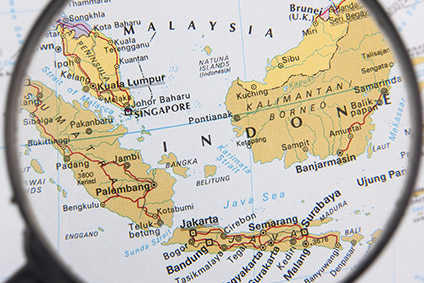
Indonesia has launched its Decent Work Country Programme (DWCP) for 2020-2025, aimed at promoting decent work and productive employment.
In response to the fast changing world of work in Indonesia, including the impact of the current Covid-19 pandemic, the programme will run from 2020-2025, with immediate effect. It takes into account national employment priorities and global development targets, including Making Indonesia 4.0, Roadmap of Vocational Development Policy in Indonesia 2017-2025 and the 2030 Sustainable Development Goals (SDGs).
The DWCP has been signed by Indonesia’s key labour actors: Ida Fauziyah, Minister of Manpower; Hariyadi Sukamdani, chair of the Indonesian Employers’ Organization; Elly Rosita, president of Confederation of All Labour Union (KSBSI); Said Iqbal, president of Indonesian Trade Union Confederation; Andi Gani Nena Wea, president of All Indonesian Workers Union Confederation; Yorrys Raweyai, chair of All Indonesian Workers Union Confederation; H.M Syaiful B. Anshori, president of Indonesia Moslem Labour Confederation (K-SABURMUSI); and Ristadi, president of National Workers’ Confederation (KSPN).
DWCPs are the main framework for delivering the International Labour Organization’s (ILO) support to countries, and are focused on a number of priorities and outcomes.
Based on a series of reviews and consultations among the tripartite partners, three priorities have been determined:
- Effective social dialogue that promotes sustainable business and workers’ welfare
- Job creation and youth employment
- Enhancing protection for vulnerable groups of workers
“Taking into account the current employment challenges, including major changes in the nature of employment due to the advancement of technology, globalisation, climate change and so forth, the DWCP will guide tripartite actions, with continuous support from the ILO, towards the promotion of decent work and productive employment,” says Michiko Miyamoto, country director of the ILO for Indonesia.

US Tariffs are shifting - will you react or anticipate?
Don’t let policy changes catch you off guard. Stay proactive with real-time data and expert analysis.
By GlobalDataThese priorities are in line with the current employment conditions of Indonesia, the ILO says. Despite the strong economic and employment growth, decent work challenges persist due to adverse macroeconomic conditions and an increasing number of informal and/or precarious jobs that fail to improve the living standards. The changing nature of employment (e.g. platform workers), skills mismatch, informalities, insufficient social security coverage and declining bargaining power of workers are some of the key factors that weaken the linkages between economic and job growth.
In addition to the launch, a public dialogue is being held to further discuss actions that should be taken by key labour actors to respond and adapt to the massive and fast changing world of work in the country. The dialogue titled, ‘How Indonesia respond to fast changing world of work’, also highlights joint efforts to address the impact of the pandemic to the world of work.



